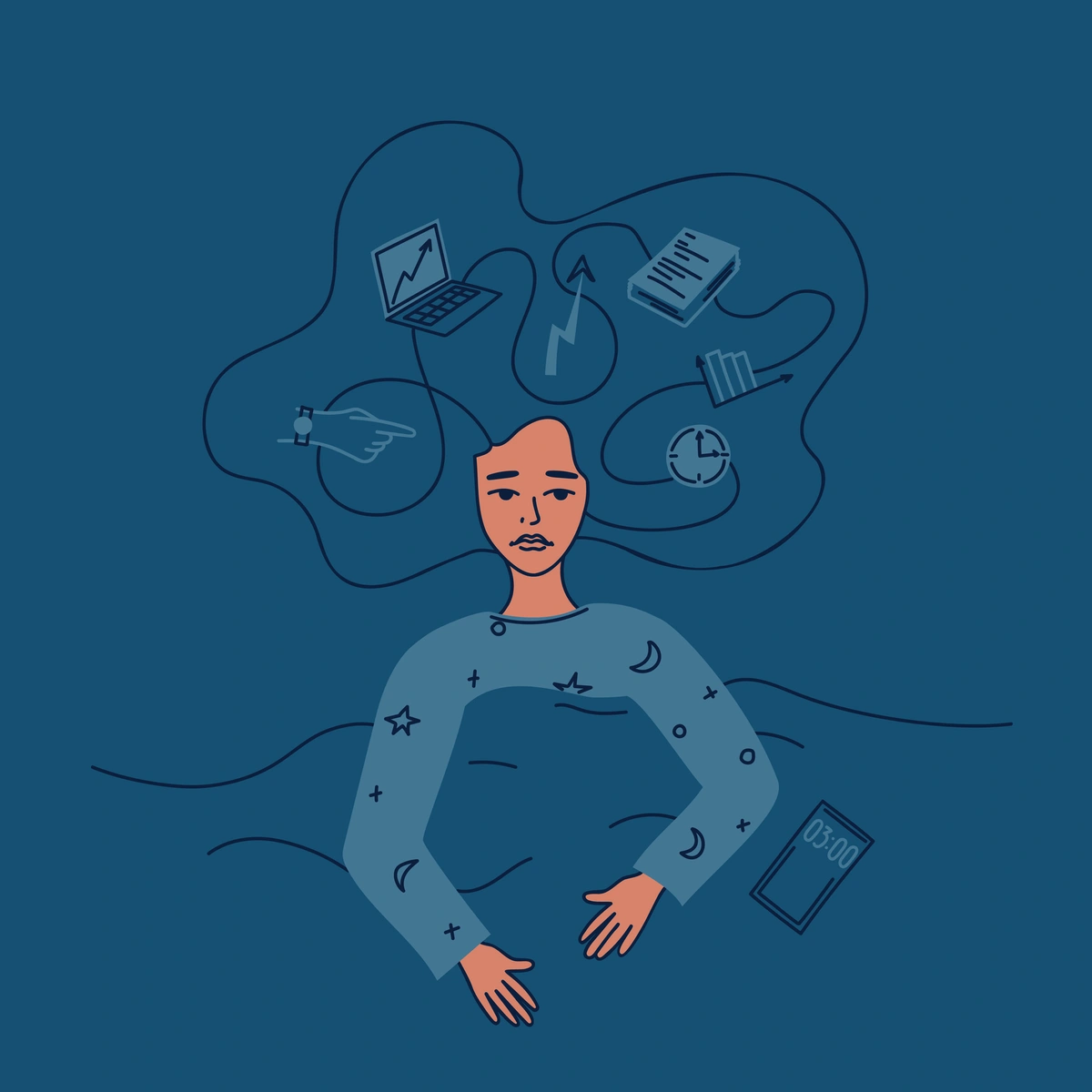Living with Insomnia

Living with Insomnia
What you need to know about Insomnia
April 19, 2024 | Dr. Joel L. Young
After a long day, you look forward to sliding into bed, getting some shuteye and gaining the chance to face the day with fresh eyes tomorrow. Instead, you toss and turn for hours, falling asleep three hours before the alarm clock sounds. Or maybe you drift off OK, but awaken dozens of times throughout the night, struggling to fall back asleep each time. Many individuals find themselves struggling with insomnia and wondering if it could be a symptom of a bigger issue.
Insomnia is enough to push even the calmest among us over the edge. And sleep deprivation can make it difficult to think clearly, function properly, or even make it to work on time. You don’t have to continue on this path. Sleep issues are not set in stone. Treatment works, and often, it works quicker and better than you might think.
Insomnia: you’re not alone
Particularly if you’re sleeping next to a significant other who seems totally relaxed, it’s easy to feel like you're the only person in the world who struggles with insomnia. But insomnia is common. About 10% of adults have chronic insomnia, and more than a third struggle with periodic episodes of sleeplessness. Factor in the occasional restless night, the effects of stress, and the amplifying effects of caffeine, and you have a recipe for lots of restless sleepers out there.
Insomnia rarely corresponds to signs and symptoms of mental illness. More often, it’s a lifestyle issue that signals an inability to quiet a racing mind.
Why insomnia in children is different
It’s common for both children and adults to struggle with insomnia, and in both cases, the problem is normally a lifestyle issue—not a serious health concern. No need to google “Am I depressed?” or look for a mental disorder quiz. But insomnia in children is different. Children depend on sleep to grow strong and healthy brains. Sleep-deprived kids may struggle at school, experience behavioral issues, and be less equipped to learn. So adults should not disregard insomnia in kids. Your child will not just eventually fall asleep when he or she is tired enough. Sleep issues demand immediate intervention from someone who understands them—not someone who will instruct you to punish your child into sleeping or insulate you should leave him or her alone if he or she is afraid to sleep.
How much sleep do you need anyway?
Most of us have heard the general recommendation that we need 6-8 hours of sleep a night. That’s a misleading statement, as sleep needs vary with age, activity level, and multiple other factors. Some people just naturally need more sleep. Very active people, those facing stress, and those with chronic illnesses may also need more sleep.
People who get less sleep than they need for more than 1 - 2 nights are vulnerable to a plethora of health concerns. Children may display behavioral issues or struggle to learn appropriately at school. The National Sleep Foundation makes the following sleep recommendations:
- Newborns 0-3 months: 14-17 hours
- Infants 4-11 months: 12-15 hours
- Toddlers 1-2 years: 11-14 hours
- Preschoolers 3-5 years: 10-13 hours
- Children 6-13 years: 9-11 hours
- Teens 14-17 years: 8-10 hours
- Adults 18-64 years: 7-9 hours
- Seniors 65 and older: 7-8 hours
Sleeping pills aren’t the only option
Many people who struggle to sleep will talk to a primary care physician and get a prescription for sleeping pills. There’s nothing wrong with short-term use of sleeping pills, but these medications aren’t for everyone. Individuals who need sleeping pills in the short-term should always combine the psychotropic approach with care and counseling to address the root of the problem.
In people who take certain drugs, who have a history of alcohol or drug abuse, and who have other risk factors, the risks of using sleeping pills may be greater. Talk openly and honestly about your medical history with your doctor.
Lifestyle strategies for managing sleeping difficulties
If your insomnia is mild or only occasional, some simple lifestyle strategies can help. These include:
- Sleeping in a cool, dark, quiet room with a white noise machine.
- Creating a bedtime routine for yourself or your child.
- Avoiding exercise and excitement in the hours before bedtime.
- Cutting down on caffeinated beverages.
- Meditating before you fall asleep.
- Only using your bed for sleep or sex.
Getting up and doing something else if you can’t sleep. Otherwise, your brain begins to associate your bed with sleeplessness, initiating a cycle of stress and insomnia.
Treatment for insomnia
If you’d prefer to avoid sleeping pills, one of the easiest ways to treat insomnia is with therapy. Cognitive-behavioral therapy can be particularly effective. A program called CBT-I (Cognitive Behavioral Therapy for Insomnia) is specifically designed to identify problematic thoughts and behaviors—such as thinking about things that upset you when you fall asleep—then helping you find better coping strategies. Many people with insomnia get stuck in loops of negative thoughts, but CBT or CBT-I can reverse this process. It’s simple, safe, and may help you—or your child—get some much-needed rest.
References:
- Insomnia Awareness Day facts and stats. (n.d.). Retrieved from http://www.sleepeducation.org/news/2014/03/10/insomnia-awareness-day-facts-and-stats
- National Sleep Foundation recommends new sleep times. (n.d.). Retrieved from https://sleepfoundation.org/press-release/national-sleep-foundation-recommends-new-sleep-times
Ready to boost your practice?
Try 3 complimentary assessments on us.